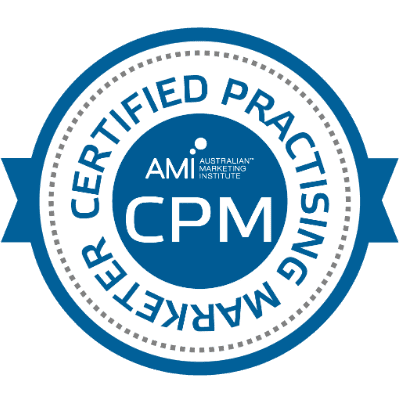What Organic Search Traffic is and Why You Need It
SEO is at the heart of any good website’s advertising efforts. But do you know what organic search traffic is and why it matters?
Read on to find out!
Want to grow your website and engage readers? Struggling to get more clients and sales? If so, good SEO is a must!
This acronym stands for search engine optimization. Its goal is to drive traffic to your website and boost your online presence.
Unlike pay-per-click advertising, SEO doesn’t require you to pay for traffic. It’s all about optimizing your pages for readers and search engines alike. The results don’t come overnight, but they will last.
Organic search accounts for about 51 percent of all traffic. Paid search, by comparison, makes up just 10 percent of traffic. If your site is well-optimized, customers will easily find it in search results.
Before going any further, let’s see what organic search traffic is and why it matters:
What’s Organic Search Traffic All About?
When Internet users search for products or information online, they have two options. They can either access the first sites listed in search results, or click on paid ads.
The websites listed on the first page in search results receive the most traffic. At a closer look, you can see that they include the terms used in your search. Moreover, the content is relevant and to the point.
Let’s say you’re searching for a new mobile phone. Most likely, you’ll use terms like “best mobile phones,” “cheap mobile phones,” or “2017 mobile phone.” The first websites that show up on Google redirect users to popular online stores, such as Amazon.
If you access the third or fourth page, you’ll find smaller stores and sites with lots of pop-ups and poor structure. Thus, it makes sense to buy from the sites listed first in search results.
A web page that provides quality content will naturally rank higher than one with poorly written content. Besides website copy, there are other factors that influence your rankings. These include website navigation, proper keywords, metadata, and more.
To get organic search traffic, it’s necessary to consider all of these factors. Quality content, for instance, cannot offset the damage caused by bad linking or pop-ups.
What Are the Most Important Most Important Google Ranking Factors?
SEO is all about optimizing your pages and content for the search engines. This will result in more traffic, sales, and brand awareness.
As a business owner, it’s your responsibility to drive customers to your site. You need to build quality links, remove bad links, and write content that’s relevant to your niche.
Quality content and links are the primary factors based on which Google ranks your site for organic search traffic. According to a study by Moz and Buzzsumo, long-form content gets more links and shares than shorter posts. Ideally, your articles should have at least 1,000 words.
Google uses over 200 ranking factors to determine which websites provide the greatest value. Let’s see the most important ones:
- Domain age and history
- Keyword density
- Content quality
- Content length
- Duplicate content
- Reading level
- Page loading speed
- Image optimization
- Link quality and relevancy
- Canonical tags
- Mobile responsiveness
- Country TLD extension
- Site architecture
- Number of outbound links
- Broken links
- Affiliate links
- URL length
- User-friendly layout
- Breadcrumb navigation
For instance, websites that have SSL certificates are perceived as more trustworthy. The same goes for those with older domain names and lots of social shares.
According to Google’s support blog, your website must provide original, quality content to rank high on search results. Sites with too many broken links and duplicate posts are often penalised by the search engines.
Another factor to consider is mobile responsiveness. Web pages that are not optimized for mobile devices may not rank as high.
Today, more and more people are browsing the Web from their smartphones or tablets. Any of them is a potential client. Thus, it’s vital to optimize your website for mobile devices.
This will lead to increased organic search traffic and more revenue. On top of that, it will boost your online exposure and strengthen your brand.
Why Is Organic Traffic Important to Your Business?
Wonder why you should use SEO rather than paying for traffic? Well, organic search traffic has its perks.
First of all, it’s long-lasting. With pay-per-click (PPC), you’ll only get traffic fast, but the numbers will drop as soon as you stop paying for ads. SEO, on the other hand, has a lasting impact on your traffic stats.
Secondly, organic search traffic involves lower costs. You can optimize your pages yourself, or hire an expert. Either way, it’s cheaper than PPC.
For example, you can cover the basics, such as content writing. Ask an SEO expert to handle the technical aspects. This will significantly lower your costs.
Thirdly, websites that attract organic traffic are perceived as having more authority. Their pages offer quality content and have a clear structure that users can easily follow.
In the long run, organic search traffic can boost your online presence and drive massive sales. It provides a high return on investment and reflects positively on your brand.
Additionally, well-optimized sites offer a better user experience. They’re easy to navigate and contain relevant keywords, which help keep customers engaged.
Let’s say your company sells sports equipment. When people search for words like “running shoes” or “training gloves,” they will find your website on the first page of Google. Good SEO places your business directly in front of buyers.
Compared to traditional marketing channels, SEO is more affordable and effective. It allows you to laser-target your audience and to build a powerful brand. Moreover, it boosts your credibility and online reputation.
Organic Traffic – The Key to Business Growth
Whether you want to increase sales or establish yourself as an industry expert, organic search traffic can help. It’s a proven way to attract prospects and turn them into customers.
Even if you only have a blog, you still need organic search traffic. Without it, users won’t be able to find your pages and check the content. What’s the point in writing great posts if no one can read them?
What are your top strategies to drive website traffic? Do you prefer SEO, PPC, or both? Share your tips below!







